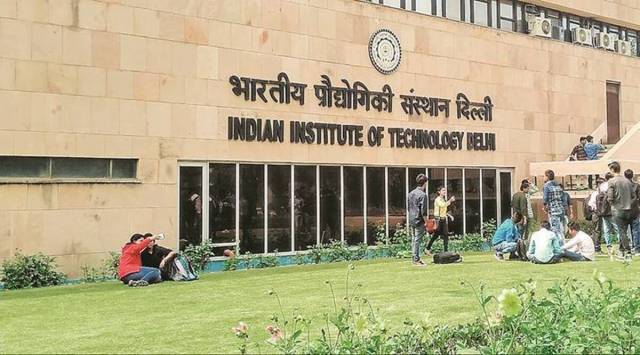© The Indian Express Pvt Ltd
Latest Comment
Post Comment
Read Comments
 The rankings are annually published by the UK-based Times Higher Education magazine.
The rankings are annually published by the UK-based Times Higher Education magazine. Three years after the Indian Institutes of Technology (IITs) boycotted the Times Higher Education (THE) World University Rankings over issues of “transparency”, the ranking agency, in a bid to bring them back on board, approached the premier engineering schools last month to inform them of the specific changes in the performance parameters this year that address their concerns.
According to sources, representatives from Times Higher Education (THE) recently made a presentation to IIT-Delhi, IIT-Bombay, and IIT-Madras, on March 7. During the presentation, THE listed modifications to the ranking criteria, including changes to the citation metric, which the IITs had previously been critical of. The citation metric, which measures the average number of times a university’s published work is cited by scholars globally, carried a weightage of 30% earlier. It has now been reduced by half, down to 15%, The Indian Express has learned.
The rankings are annually published by the UK-based Times Higher Education magazine.
One of the reasons the IITs had raised concerns over the citation metric was the issue of collaborative research projects. The IITs had alleged that participating institutions use collaborative research projects to bump up their score on the citation metric. Such research papers have high citations because of the multiple authors associated with them. Hence, an institution that is part of such a project ends up having a disproportionate advantage over others because of one paper that is cited multiple times globally. This can lead to an unfair representation of the institution’s research output and impact and may not accurately reflect its actual performance, the IITs had told THE.
The seven old IITs in Mumbai, Delhi, Bombay, Madras, Kanpur, Roorkee and Kharagpur had boycotted THE rankings first in 2020, citing concerns over transparency after none of them found a place among the world’s best 300 universities the year before. In 2019, a relatively newer IIT surprisingly beat its older and established counterparts in the Times Higher Education World University Rankings that year as it scored high on the citation metric on account of being part of an international collaborative research project.
Apart from reducing the weightage of the “influential” citation metric to half, THE has added three new indicators that collectively account for 15% — typical research strength (5%), excellence in research (5%) and the network effect of citations (5%). The three new parameters collectively make up for the reduction in the citation metric.
While ‘typical research strength’ gauges how strong a university’s research is compared to others, ‘excellence in research’ is a measure that looks at whether a university has areas of outstanding research. Finally, the ‘network effect of citations’ looks at the importance of the researchers who are citing a publication. It considers that a citation from a more important researcher carries more weight than a citation from a less important researcher.
The above changes, THE argued in its presentation to the IITs last month, would address IITs’ concern over “high ranking positions for very small, relatively unknown Indian Institutions, with high volatility of positions from one year to the next for some institution.”
In response to the IITs’ request for more information on how ranks are tabulated, THE reportedly is learned to have told the institutes during the presentation that Price Waterhouse audited its ranking calculations between 2019 and 2021, and the audit reports are available in the public domain for any institute to access. However, THE did not provide full access to the software codes and data sets used for the rankings calculations.
The Indian Express contacted the directors of the three IITs that attended the meeting last month. IIT-Bombay director Subhasis Chaudhari and IIT-Delhi Rangan Banerjee told this newspaper that they had not made any decision on resuming their participation in the THE World University Rankings so far and that all heads of the seven older IITs will have to decide collectively since the boycott was also done together in 2020. IIT-Madras director V Kamakoti did not respond to requests for comment.
Speaking to The Indian Express, Phil Baty, THE’s Chief Global Affairs Officer, said “These seven IITs represent an extremely rare and tiny group of institutions choosing not to volunteer to take part in Times Higher Education’s gold-standard world ranking. We have fully respected their decision to exclude themselves from the global rankings, as we operate a collaborative and voluntary process to support universities.”
“Data collection is now well underway for the 2024 edition of the THE World University Rankings, published in September this year, and we have locked-down a revised methodology, making several adjustments to our indicators and weightings, after over two years of open consultation with the global higher education community. I am happy to confirm that we have shared our methodological refinements directly with the IITs at a meeting convened especially for them, and we have held meetings with a range of national bodies in India to support transparency and to facilitate collaboration.” Baty said
He further added that THE would remain open to answering any further questions the seven IITs may have and that they were keen to welcome them all back into the process, and to support their data submission.